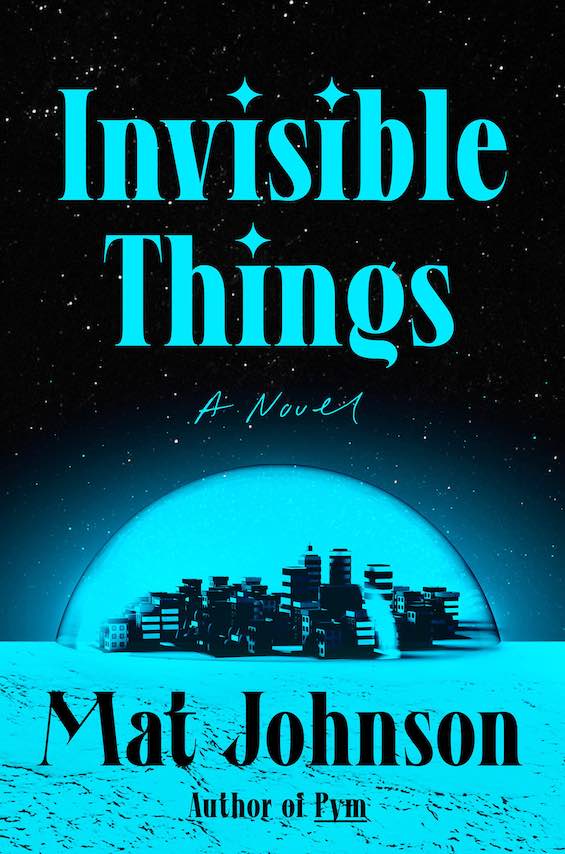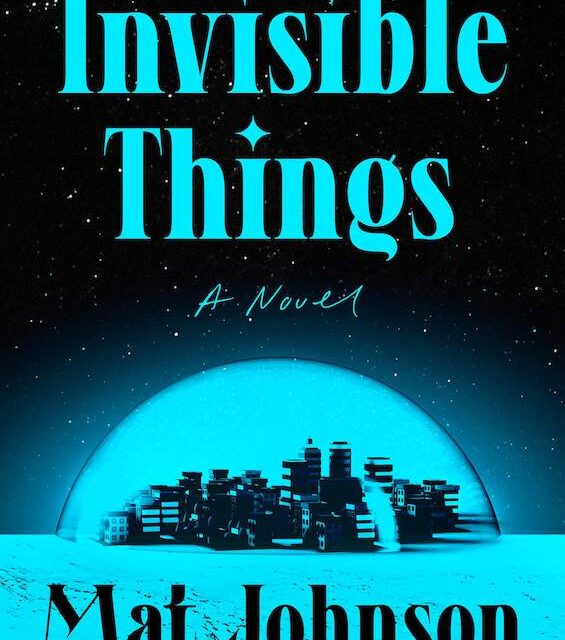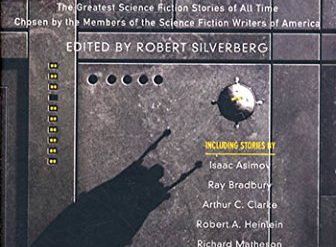
You’ll get a sense of what Mat Johnson is driving at on the second page of his satirical science fiction novel, Invisible Things. There, sociologist and astronaut Nalini Jackson muses about what another science fiction author termed life, the universe, and everything.
“If humanity achieved interstellar migration,” she thinks, “it could pollinate the universe with sentient life for millennia, avoiding extinction via diversification of location. If humans didn’t accomplish this goal, the only unanswered question would be which combo of consequences for humanity’s collective sins would deliver the fatal blow. Climate devastation, nuclear Armageddon, systemic xenophobia, virulent partisanship, pandemics man-made or man-fault—they were all strong contenders. The range of cataclysms was dazzling, but as an academic Nalini was most impressed with humanity’s ability to embrace the delusion that everything was fine.”
In the pages ahead, Johnson demonstrates the truth of his protagonist’s thinking. He introduces us to a human city under a dome that has mysteriously materialized on the surface of Jupiter’s moon Europa. There, the ongoing morality play of human history predictably unfolds in class conflict and the folly and greed of self-appointed leaders.
Invisible Things by Mat Johnson (2022) 272 pages ★★★★☆

A crew led by an insufferable bully
Nalini Jackson has arrived in orbit around Jupiter “after months in deep space conducting an intensive field study of social dynamics aboard the cryoship SS Delany.” (A nod to science fiction master Samuel R. Delany, get it?) During this time she “came to an uncomfortable conclusion: She didn’t really like people, on the whole. It was an embarrassing realization, given that her life’s work was studying them. Sort of like a dentist who hates teeth, she feared. It was incredibly isolating as well, as the universe lacked any other intelligent life to talk to.”
If you’d met Jackson’s crewmates on the Delany, you might well reach the same conclusion. “The Bobs” constitute a majority in the crew. They’re all graduates of MIT and lord it over Jackson and her colleague, Wayne Causwell, who gained their undergraduate degrees from CalTech. “The Bobs” are led by a thoroughly insufferable bully named Bob Seaford. He is “a bureaucratic scientist whose greatest distinction was the level of shamelessness with which he endorsed dodgy environmental-impact assessments for energy oligarchs. Appallingly wealthy donors who repaid Bob’s decades of soul-selling with the senior research position on this little field trip to Jupiter.”
This is a satirical science fiction novel, not hard SF
Most often when I read books in the genre, I look for the signposts of reality. I gravitate toward hard science fiction which is heavy on science and light on fantasy. But I found that to be a mistake when reading Invisible Things. It’s a satirical science fiction novel that uses the tropes of the genre to make points about class conflict and the folly of human existence. There is no domed city on Europa except in Mat Johnson’s fertile brain.
About the author

Mat Johnson is the author of five novels and four comics or graphic novels as well as one nonfiction book. He has taught creative writing at several universities and currently serves as Philip K. Knight Chair of Humanities at the University of Oregon. Johnson was born in Philadelphia in 1970, the son of an African-American mother and an Irish Catholic father. He holds a BA from Earlham College and an MFA from the Columbia University School of the Arts.
For more reading
See Michael Dirda’s excellent review of this novel in the Washington Post. It’s at “‘Invisible Things’ is a science fiction novel with an eye on the now.” And check out Mat Johnson’s Fresh Air interview with Terry Gross.
For more good reading, check out:
- These novels won both Hugo and Nebula Awards
- The ultimate guide to the all-time best science fiction novels
- 10 top science fiction novels
- The five best First Contact novels
- Seven new science fiction authors worth reading
And you can always find my most popular reviews, and the most recent ones, on the Home Page.

























